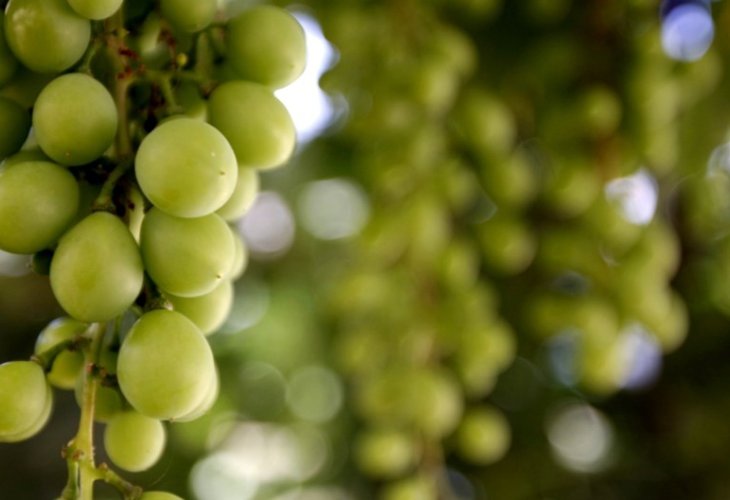Jewish Law
Understanding Shemittah: The Complete Guide to the Sabbatical Year in Jewish Law
Biblical sources, modern halachic practice, regional differences, and how Shemittah applies today
- Joseph Goldfrandi
- |Updated

The Torah contains several verses that discuss the Shemittah year:
Vayikra 25:1–8
“And Hashem spoke to Moses on Mount Sinai, saying: Speak to the Children of Israel and say to them: When you come into the land that I give you, the land shall rest a Sabbath to Hashem. Six years you shall sow your field, and six years you shall prune your vineyard and gather in its produce. But in the seventh year, the land shall have a complete rest, a Sabbath to Hashem. You shall not sow your field, nor prune your vineyard. What grows on its own from your harvest you shall not reap, and the grapes of your unpruned vine you shall not harvest — it shall be a year of rest for the land. The Sabbath produce shall be for you to eat: for you, your servant and maidservant, your hired worker and resident who live with you; and for your cattle and the wild animals in your land, all its produce shall be for food.”
Shemot 23:10–11
“Six years you shall sow your land and gather in its produce. But the seventh you shall let it rest and lie fallow, so that the poor of your people may eat; and what they leave, the animals of the field shall eat. So shall you do with your vineyard and olive grove.”
Devarim 15:1–3
“At the end of seven years you shall institute a release. And this is the matter of the release: every creditor shall release what he has lent to his fellow. He shall not demand it from his fellow or his brother, for the Lord’s release has been proclaimed. From a foreigner you may exact payment, but your hand shall release what is owed by your brother.”
Which Mitzvot Apply During the Shemittah Year?
During the Shemittah year, three main categories of mitzvot apply:
1. Resting from agricultural work
Positive commandment: To allow the land and trees to rest.
Negative commandment: Not to perform agricultural labor on the land or fruit trees.
2. Shemittah of produce (Kedushat Shevi’it)
The produce that grows during the Shemittah year gains sanctity and must be handled according to halachic guidelines.
3. Shemittat Kesafim (release of debts)
All loans between Jews are released at the end of the Shemittah year.
Is Shemittah Today Biblical or Rabbinic?
Most halachic authorities hold that Shemittah in our time is rabbinic.
In cases of doubt — such as when you're a guest and unsure whether fruits or vegetables served are permitted — one may be lenient, since rabbinic doubts are ruled leniently. If it’s easy to clarify the source or kashrut certification, it should be done; otherwise, one may rely on the leniency.
Where Does Shemittah Apply?
In the Land of Israel:
All Shemittah laws apply:
Agricultural restrictions
Sanctity of produce
Release of debts
Outside the Land of Israel:
Only Shemittat Kesafim (release of debts) applies.
What Areas Qualify as “Eretz Yisrael” for Shemittah?
Throughout Jewish history, the Land of Israel experienced multiple conquests:
By those who came from Egypt
By those who returned from Babylon
There is debate about which conquests established permanent halachic status. Therefore, we treat all parts of the Land of Israel today as obligated in Shemittah, and we do not rely on leniencies.
Specific regions:
Eilat: Considered outside Israel regarding Shemittah laws (but considered Israel for tithes — this is a dispute; the ruling here follows Yalkut Yosef).
Syria:
Jewish-owned land: Some Shemittah laws apply
Non-Jewish-owned land: Shemittah laws do not apply
Golan Heights & East of the Jordan:
Some Shemittah laws apply (e.g., agricultural labor is forbidden)
Sefichin (self-grown produce restrictions) do not apply in these areas
Southern Golan:
All Shemittah laws apply, including sefichin
Because these laws are complex, one should consult a qualified halachic authority.
Does the Jubilee (Yovel) Apply Today?
No. Unlike Shemitah, the Jubilee year does not apply at all in our times.
Tikkun Rachel and Tikkun Leah During the Shemittah Year
In the Land of Israel: Only Tikkun Leah is said; Tikkun Rachel is omitted.
Outside Israel: Both Tikkun Rachel and Tikkun Leah are said.
Shehecheyanu
When reciting Shehecheyanu in the Kiddush of Rosh Hashanah, one should have in mind to thank God for the privilege of fulfilling the mitzvot of the Shemittah year.

